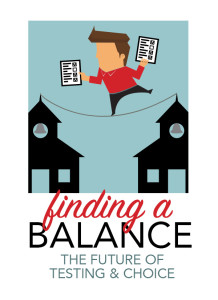 Over the past two weeks, we’ve aired six perspectives on testing and school choice.
Over the past two weeks, we’ve aired six perspectives on testing and school choice.
We can’t claim to have found all the answers, but we hope our contributors have raised some important issues in ways that go beyond the usual talking points.
- As Jacqueline Cooper explains, testing can yield vital data on school performance, and help ensure schools meet the needs of students they have historically short-changed. And, as Mike Petrilli notes, it’s crucial for even light-touch regulators to root out the worst schools, which can be especially harmful for low-income families.
- But, as Jason Bedrick outlines, regulators need to have humility when it comes to judging school quality using tests alone, or imposing mandates that could drive some high-quality schools away from choice programs. An over-reliance on testing can be burdensome for schools, as Jane Watt describes, drawing on her experience as a charter school founder.
- Tony Bennett proposes a sort of middle ground: giving schools and districts a choice of a few, relatively lightweight tests that measure students’ progress toward college- and career-ready standards. That, he writes, could give educators more flexibility.
- As Tom Vander Ark shows, it’s time to start thinking about a new approach to testing and accountability that can change the current debate. Lightweight assessments and real-time data on can be useful to teachers, and may eventually usher in the “end of the big test,” but those ideas are still a ways from becoming reality.
Taken together, the contributions show testing can be vital to a well-run school system, but also has real costs that, if unaddressed, can hamper educational choice.
They also point to a new course states can begin to chart, toward a system that might ultimately resolve some of the present controversy while better fulfilling tests’ original purpose: Giving educators and the public clear information about how well their chldren, and their schools, perform.


